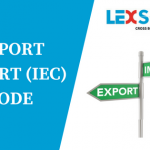Cross border e commerce Selling on Amazon : Sellers dilemma – MFN Vs FBA
If you are an Amazon seller and one of your most crucial decisions will be whether you ship using MFN (Merchant fulfilled network) or FBA (Fulfillment by Amazon) or both. The best way to decide between MFN or FBA is to calculate the size and scope of your operation and understand how your product mix affects the FBA fees you will incur.
Amazon sellers have their own strong opinions about each method, and each of the fulfillment methods has its own strengths and weaknesses.
MFN (Merchant Fulfilled Network)
MFN simply refers to sellers shipping their products directly from their warehouses, own homes, or businesses after receiving orders through Amazon.com.
If the seller opts for MFN packing, shipping and providing customer service will be the direct responsibility of the seller.
There’s also SFP (Seller Fulfilled Prime), a relatively new fulfilment option that offers MFN sellers with excellent metrics. Those who qualify for Amazon SFP they can enjoy the benefits of FBA without having to send shipments to Fulfillment Centers.
Amazon SFP sellers will also receive the same treatment as FBA sellers from Amazon’s Buy Box algorithm. That means the sellers with their own fulfillment systems in place can win the customers just as often as FBA sellers without having to incur FBA fees.
The clear advantage for MFN sellers is that they can ensure their packaging is perfect for their products. This results in less damaged products being reported by customers, and, as a result, fewer returns.
The main disadvantage to MFN is that buyers aren’t always as happy to use it. Because prime users spend more than non-Prime shoppers on average. And, they also tend to purchase Prime products over non-Prime ones so using MFN may also decrease your chances of winning the Buy Box versus FBA competitors.
FBA (Fulfillment by Amazon)
Sellers who use FBA should pay a fee to store their products in Amazon’s fulfilment centres closer to the actual buyer.W hen an order is placed for a seller’s FBA product, Amazon receives the information, picks the stock from the warehouse, packs it, and ships it.
Customer support will be provided by Amazon for all FBA products, these services are covered under Amazon’s FBA fulfillment fees, which are based on the weight and size of items sold. For FBA products Amazon also imposes short- and long-term storage fees, so the longer an item stays in FBA inventory, the more fees a seller will have to pay.
The major FBA perk is that you become eligible to offer Prime shipping to your customers, and the major disadvantage to FBA is the cost. Because Amazon holds all the rights to take as much fees they can take for its service as it deems appropriate.
More so for a “cross-border seller” additional cost are incurred, by means of statutory compliance in the country of sales, Applicability of duties and taxes, inability to bring the shipments back (Returns) to the country from where they were exported.
Hence it is important for every seller to understand the total laden cost for each service option and chose the one that fits them the most.
Most of the sellers test each fulfillment method with limited inventory using both FBA and MFN listings so they can see which works better for them. Sometimes, FBA and MFN fulfillment have different advantages for the same seller, depending on the products being sold.


 Previous Post
Previous Post
Thank you for another great article. Where else could anybody get that kind of information in such an ideal manner of writing? Cynthea Ivor Fording